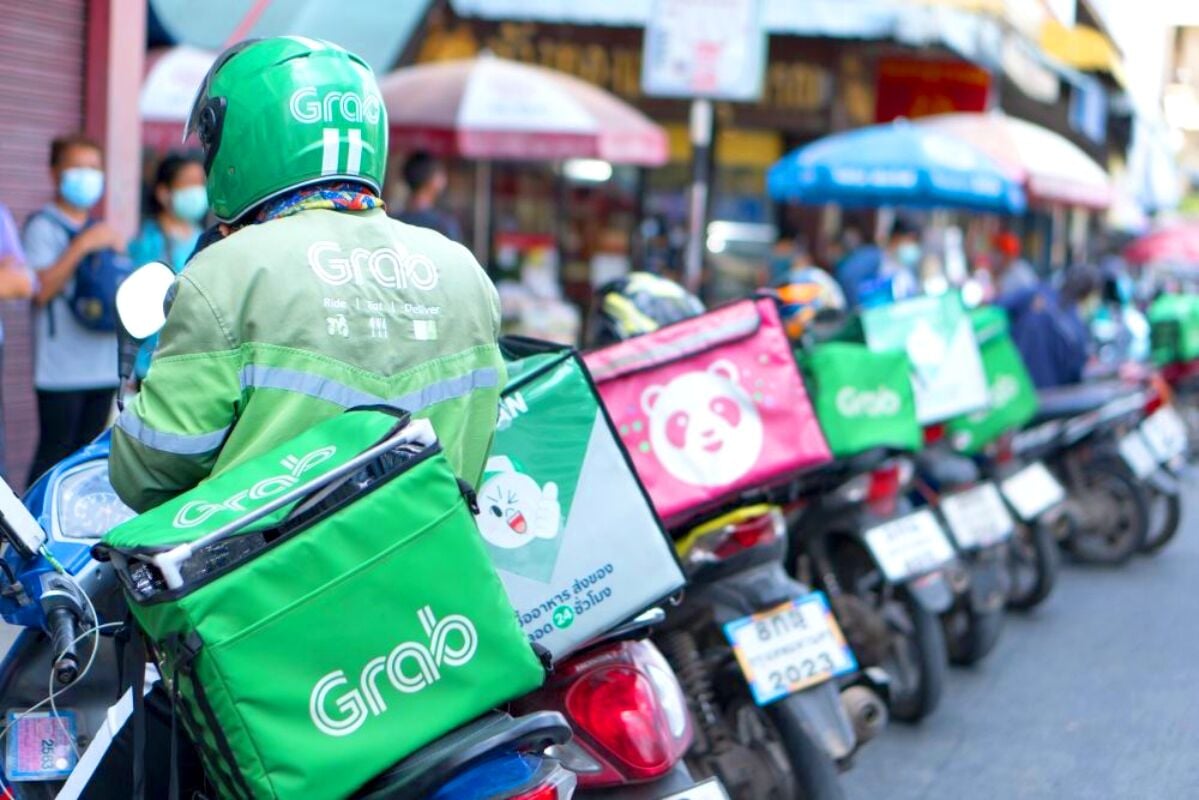Delivery riders want employee support and benefits

Delivery riders in Thailand are calling for the next government to provide them with the same benefits as employees in other fields. Riders deal with work hazards ranging from harassment to road accidents, often without support or backup from their employers, including health insurance.
Food delivery riders are often classified as “partners” instead of “employees.” This distinction results in a lack of entitlement to benefits typically provided to employees, including health and vehicle insurance.
In the event of a road accident, riders are frequently left to manage repair costs and hospital expenses without any support from the company. This practice of denying basic benefits to delivery riders ultimately puts them at a disadvantage compared to other more traditional employees and workplaces.
The “Dearmedearyou” Facebook page has been shedding light on the issue. The owner spoke Saturday at a conference at Bangkok Art and Culture Centre on the well-being of delivery riders, which was attended by activists, delivery riders and politicians.
She said that many delivery riders face road accidents and sexual harassment without proper support from their companies. The failure of ride-hailing platforms in Thailand to appropriately handle harassment faced by their riders has been heavily criticised.
Companies will block an offending user from booking service from the rider who complains but don’t ban them systemwide from using the service. This essentially brushes off the validity of the driver’s complaint and allows the problem customer to move on to harassing other drivers.
This fails to address the root problem of harassment complaints. And while many companies sympathise and offer platitudes publicly about harassment issues, often no clear policy is set beyond lip service.
Politicians have weighed in on the plight of delivery riders. The Pheu Thai Party Policy Centre suggested a protection law for informal workers like drivers.
Move Forward Party’s Think Forward Centre encouraged a rider labour union, and called for a system to handle disputes between platforms and the drivers they employ. They called for laws about working conditions, benefits, and wages to be updated.
The Democratic Party policy chairman went the other direction though, deflecting by encouraging companies to focus on vehicle safety. He said there’s no need for new laws, but instead, the current laws should be reinterpreted to consider delivery riders formal employees, not unprotected partners.
Latest Thailand News
Follow The Thaiger on Google News:


























